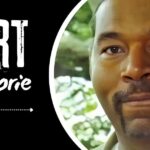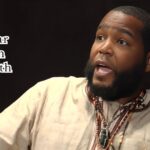You know what’s refreshing in today’s world of celebrity kids gone wild and sports legacy disasters?
A young man who actually learned something valuable from watching his famous father – and it wasn’t just how to throw a knuckleball.
Trevor Wakefield represents something rare in our spotlight-obsessed culture: authentic leadership that doesn’t need a megaphone, genuine service that doesn’t require social media validation, and the wisdom to know that following your own path can honor your family’s legacy better than trying to copy it.
Ready to discover how quiet strength beats loud noise every single time?
You May Also Like: Is Bruno Mars Married? Wedding Rumors, Breakup Chatter, and the Truth
What Inspired Trevor Wakefield’s Path?
Picture growing up in a household where your dad’s day job involves 40,000 people either cheering or booing his every move.
Most kids would either crave that spotlight or run screaming from it.
Trevor chose door number three – he watched, learned, and quietly decided that real impact happens when the cameras aren’t rolling.
His inspiration didn’t come from the World Series rings or the standing ovations at Fenway Park.
It came from watching his father handle both victory and defeat with the same steady grace, from seeing genuine relationships built through years of consistent character, and from understanding that true leadership is measured in lives changed, not statistics accumulated.
The Boston Red Sox might have been Trevor’s classroom, but humility and service were his core curriculum.
Early Life and Family Background
Growing up Wakefield in Melbourne, Florida meant learning early that your last name opens doors – but your character determines whether you deserve to walk through them.
Tim Wakefield and Stacy Wakefield created a home where baseball success was celebrated, sure, but where homework still got checked and chores still got done.
Trevor and his sister Brianna Grace Wakefield weren’t raised as celebrity children who got special treatment.
They were raised as regular kids whose dad just happened to have one of the most unpredictable pitches in professional sports.
The Wakefield family values weren’t complicated: work hard, treat people right, give back to your community, and remember that talent without character is just wasted potential.
These weren’t motivational poster slogans hanging on the wall – they were daily expectations lived out through example.
Trevor learned that being a Wakefield meant something beyond baseball statistics.
It meant responsibility, service, and understanding that privilege comes with purpose.
Mentors and Influences in Trevor’s Life
When your father is Tim Wakefield, you get a front-row seat to watch how genuine leaders handle pressure, criticism, and success.
But Trevor’s influences extended far beyond the baseball diamond.
His evangelical Christian faith provided the foundation for his worldview, teaching him that true greatness is measured in service to others, not personal achievements.
At Providence College, professors and campus mentors challenged him to think deeply about theology and Spanish – subjects that might seem unrelated but actually complement each other perfectly.
Theology asks life’s biggest questions while Spanish opens doors to serve diverse communities.
The combination created a young man prepared to bridge differences and build understanding.
Red Sox Foundation volunteers and Jimmy Fund workers became unofficial mentors, showing Trevor that changing lives doesn’t require fame – just consistency, compassion, and showing up when it matters.
These influences shaped someone who understands that the best leaders often work behind the scenes, creating systems and relationships that outlast any individual achievement.
Educational Journey and Career Path
Providence College wasn’t chosen because it had a great baseball program or celebrity alumni.
Trevor selected it because it offered exactly what he needed: rigorous academics, strong faith-based community, and the chance to explore subjects that genuinely interested him.
His double major in theology and Spanish raised eyebrows among those expecting a sports management or business degree.
But Trevor understood something profound: the world needs people who can ask deep questions about meaning and purpose while actually communicating with diverse communities.
Theology taught him to wrestle with life’s biggest questions.
Spanish taught him to connect across cultural boundaries.
Together, they prepared him for leadership that transcends demographics and denominational differences.
His role as a Resident Assistant during college provided early leadership experience – mediating conflicts, building community, and learning that authority means responsibility for others’ well-being, not just personal advancement.
The academic growth happened because Trevor approached learning like his father approached baseball: with discipline, curiosity, and understanding that mastery requires daily practice.
Professional Life and Leadership
Here’s where Trevor’s story gets really interesting.
Instead of leveraging his famous last name for high-profile positions or media opportunities, he chose business services – work that actually requires competence over connections.
His approach to team building reflects lessons learned from watching championship-caliber athletes: everyone has different strengths, success requires coordination, and the best leaders make others better.
Work-life balance isn’t just corporate buzzwords for Trevor – it’s a practical application of values learned from parents who managed demanding careers while prioritizing family relationships.
His leadership style emphasizes listening before speaking, understanding before judging, and building consensus through genuine respect rather than positional authority.
During the COVID-19 pandemic, Trevor’s adaptability showed when remote learning and virtual teamwork became necessities rather than options.
He helped teams stay connected, productive, and focused on serving customers even when everything changed overnight.
Business services might not sound glamorous, but Trevor understood that real leadership happens in everyday situations with ordinary people facing common challenges.
Key Achievements and Milestones
Trevor’s achievements don’t fill trophy cases or generate newspaper headlines.
They fill lives, strengthen communities, and build legacies that multiply across generations.
His volunteer work with the Red Sox Foundation and The Jimmy Fund represents thousands of hours invested in causes that matter more than personal recognition.
Academic excellence at Providence College demonstrated that intellectual curiosity and spiritual depth can coexist beautifully.
Professional growth in business services proved that leaders can succeed without compromise or cutting corners.
Personal integrity maintained through various challenges showed that character isn’t situational – it’s foundational.
His quiet leadership during family difficulties, especially navigating grief with grace, demonstrated maturity that many people twice his age haven’t developed.
Community impact through consistent service created ripple effects that extend far beyond any single project or initiative.
The meaningful impact happens because Trevor understands that real achievements are measured in relationships built, problems solved, and people helped rather than personal accolades accumulated.
Personal Life and Core Values
Trevor Wakefield’s personal life reflects someone who actually lives his stated values instead of just talking about them.
His faith and commitment provide the foundation for decision-making, relationship-building, and community service.
Hiking and photography aren’t just hobbies – they’re ways to stay grounded, maintain perspective, and remember that there’s a bigger world beyond immediate responsibilities.
Family values learned from Tim and Stacy Wakefield continue guiding choices about career, relationships, and service opportunities.
Humility and kindness aren’t personality traits Trevor turns on and off depending on the situation – they’re consistent approaches to treating everyone with dignity and respect.
His preference for private life over public profile demonstrates understanding that authenticity doesn’t require an audience.
Values-driven success means making decisions based on principles rather than popularity, long-term impact rather than short-term gain.
Personal integrity shows up in small daily choices as much as major life decisions.
Community Impact and Social Contributions
Community service for Trevor isn’t about checking boxes or improving his resume.
It’s about understanding that privilege comes with responsibility and that real success is measured in contribution, not accumulation.
His work with The Jimmy Fund puts him in direct contact with families facing pediatric cancer – situations that require emotional strength, genuine compassion, and the ability to offer hope without false promises.
Red Sox Foundation involvement focuses on education, health, and recreation for underserved youth, providing opportunities for kids who might otherwise get overlooked.
Volunteer work happens consistently, not just during convenient seasons or photo opportunities.
His philanthropic approach emphasizes personal involvement rather than just financial contribution – showing up, building relationships, and staying committed for the long term.
Social contributions extend beyond organized charities to include mentoring, informal counseling, and the kind of daily kindness that doesn’t get documented but makes communities stronger.
Resilience learned from watching his father handle both success and failure helps Trevor support others through their own challenging seasons.
Legacy and Future Endeavors
Trevor Wakefield’s legacy is still being written, but early chapters suggest someone who understands that the best inheritance isn’t fame or fortune – it’s values that create positive impact across generations.
His purpose-driven life demonstrates that you can honor family tradition while creating your own unique contribution.
Grounded personality keeps him focused on substance over spectacle, relationships over recognition, and service over self-promotion.
Adaptability learned through various life changes positions him well for whatever challenges and opportunities lie ahead.
His commitment to legacy of service means future endeavors will likely prioritize community benefit over personal advancement.
Future leadership roles will probably happen behind the scenes, in boardrooms and community centers rather than on stages and in spotlights.
The legacy of excellence continues not through statistics or trophies, but through lives touched, problems solved, and positive examples set for the next generation.
Frequently Asked Questions
What is Trevor Wakefield’s educational background?
Trevor earned dual bachelor’s degrees in theology and Spanish from Providence College, combining spiritual depth with cross-cultural communication skills.
Does Trevor Wakefield play professional baseball like his father?
No, Trevor chose a career in business services, focusing on team building and leadership rather than following his father’s athletic path.
What charitable organizations does Trevor Wakefield support?
He actively volunteers with the Red Sox Foundation and The Jimmy Fund, continuing his family’s legacy of community service and philanthropic work.
Conclusion
Trevor Wakefield proves that the most powerful legacies aren’t always the loudest ones.
In our social media-saturated, attention-seeking culture, he’s chosen quiet leadership that influences through action rather than amplification.
His story offers hope for anyone who feels pressured to follow someone else’s path, anyone who wonders whether consistent service really matters, and anyone who questions whether authenticity can compete with artificial personas.
Trevor’s approach to life and leadership reminds us that real success isn’t about making headlines – it’s about making a difference, one person, one team, one community at a time.
The Wakefield name will always be associated with baseball excellence, but Trevor is adding new chapters written in boardrooms and community centers, in theological discussions and cross-cultural conversations, in the quiet moments where authentic leadership actually happens.
His journey continues proving that sometimes the most meaningful victories happen away from the cameras, and the most lasting impact comes from choosing substance over spectacle every single day.










